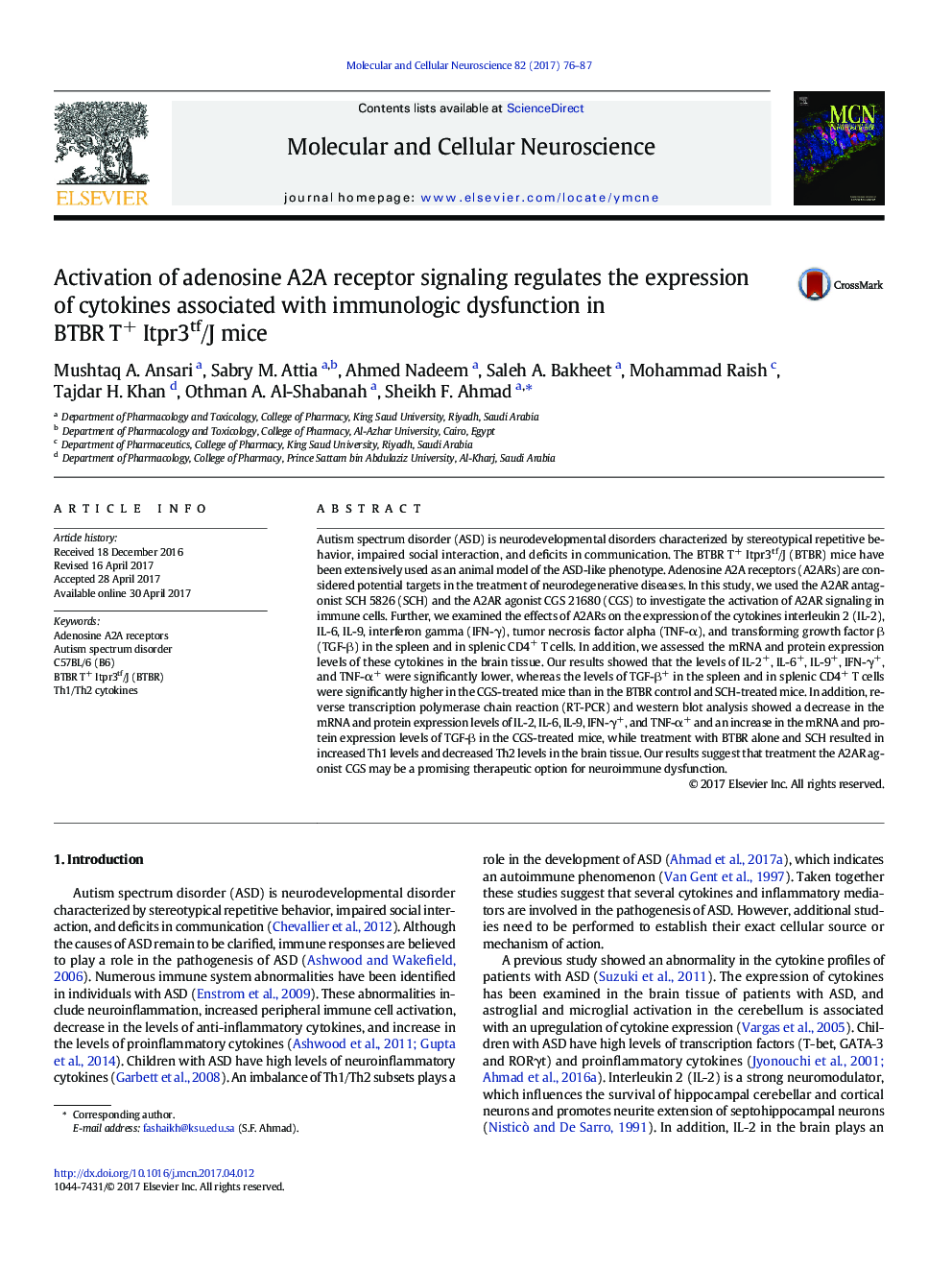| Article ID | Journal | Published Year | Pages | File Type |
|---|---|---|---|---|
| 5534347 | Molecular and Cellular Neuroscience | 2017 | 12 Pages |
â¢Adenosine receptors play a role in BTBR mice.â¢A2ARs modulate the immune responses in mice with autism.â¢A2ARs regulate the proinflammatory and anti-inflammatory cytokines in BTBR mice.â¢CGS decreases proinflammatory and increases anti-inflammatory cytokine levels.â¢CGS restores the imbalance between proinflammatory and anti-inflammatory cytokines.
Autism spectrum disorder (ASD) is neurodevelopmental disorders characterized by stereotypical repetitive behavior, impaired social interaction, and deficits in communication. The BTBR T+ Itpr3tf/J (BTBR) mice have been extensively used as an animal model of the ASD-like phenotype. Adenosine A2A receptors (A2ARs) are considered potential targets in the treatment of neurodegenerative diseases. In this study, we used the A2AR antagonist SCH 5826 (SCH) and the A2AR agonist CGS 21680 (CGS) to investigate the activation of A2AR signaling in immune cells. Further, we examined the effects of A2ARs on the expression of the cytokines interleukin 2 (IL-2), IL-6, IL-9, interferon gamma (IFN-γ), tumor necrosis factor alpha (TNF-α), and transforming growth factor β (TGF-β) in the spleen and in splenic CD4+ T cells. In addition, we assessed the mRNA and protein expression levels of these cytokines in the brain tissue. Our results showed that the levels of IL-2+, IL-6+, IL-9+, IFN-γ+, and TNF-α+ were significantly lower, whereas the levels of TGF-β+ in the spleen and in splenic CD4+ T cells were significantly higher in the CGS-treated mice than in the BTBR control and SCH-treated mice. In addition, reverse transcription polymerase chain reaction (RT-PCR) and western blot analysis showed a decrease in the mRNA and protein expression levels of IL-2, IL-6, IL-9, IFN-γ+, and TNF-α+ and an increase in the mRNA and protein expression levels of TGF-β in the CGS-treated mice, while treatment with BTBR alone and SCH resulted in increased Th1 levels and decreased Th2 levels in the brain tissue. Our results suggest that treatment the A2AR agonist CGS may be a promising therapeutic option for neuroimmune dysfunction.
